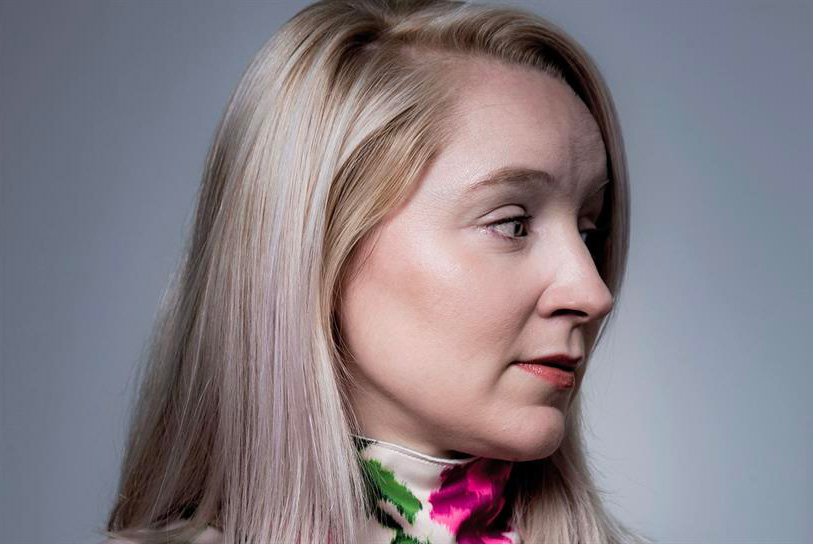Stop trying to fix the women

Opinion: Career Leaders
According to the latest All In Census, over half of women believe parental leave has negatively impacted their career progression; now is the time to recognise and remove structural barriers to women’s success.
If you believe that the creative industries are a progressive, inclusive, innovative industry, then why do over half the women in it believe that their careers will be crushed by parental leave?
Why after so many column inches, panel discussions and warm glasses of white wine are women in our industry still paying the motherhood penalty? Why, even today after a century of feminism, is it mothers who are still overcompensating, over-explaining and over-apologising for the structures, processes and people who still stand in the way of progress.
Over half (55%) of women believe that parental leave has negatively impacted their career. If this statistic from today’s All In Census doesn’t fill you with fuel to do things differently then you are part of the problem. (Please feel free to sing it Taylor Swift style: it’s you, you, you’re the problem it’s you.)
A generational reset
There has never been a better time to challenge the status quo of how, when and where we work. Expectations of the workplace have fundamentally shifted.
As a geriatric millennial I grew up in a climate in which “you love yourself” was the ultimate of criticisms. Self-care, mental wellbeing and inclusivity were not on the agenda in nineties newsrooms. A male editor bemoaning that he “didn’t know what to do” with a pregnant reporter because she could no longer get drunk with contacts elicited little more than an eye roll.
At the Cannes Lions Festival of Creativity that year a pregnant marketer at a media agency (who was replaced while on maternity leave and informed via a press release) was berated for not doing multiple shots. The Gutter was not just the name of a favourite festival bar; it was a reflection of where pregnant women’s careers were so often headed. So many careers unravelled. So many experiences unwritten and unsaid. Such an extravagant waste of talent.
Yet, in the conversation on the future of work the danger is we default to the status quo. The “I didn’t do it like that in my day” narrative that has been adopted as something of a post-Covid comfort blanket in some parts of our industry. The uncomfortable truth is this reflex is firmly rooted in guilt for the things we collectively turned a blind eye too. So before you bemoan Gen Z for their great expectations, consider instead the cost of your great silence.
In my experience of interviewing women in our industry who have experienced maternity discrimination, one of the most shocking trends has been the widespread misappropriation of blame.
Women who sign Non-Disclosure Agreements are robbed of the oxygen of solidarity which comes with sharing the truth of their experiences. Even when sharing the most clear cut cases of discrimination and bullying, these women all too often blame themselves. In a media ecosystem which encourages women to shrink themselves, the sorry reflex is equal parts strong and unforgiving.
Yet when you consider that over half of women believe their maternity leave has negatively impacted their career, it’s time to stop apologising for systems built to suffocate us.
Sorry, not sorry
The writer and activist Soraya Chemaly writes that “the anger we have as women is an act of radical imagination.” So I’m not sorry for the anger these statistics and stories ignite. The question is: how can we use frustration as a fuel for change?
It’s time to stop urging women to “build resilience” and “be strong” and instead focus our collective attention on the systems and structures that are ripe for challenging.
How we work is not working. 33% of respondents to the All In Census are affected by stress and anxiety. 32% of Black talent are likely to leave the industry because of a lack of inclusion and 14% of Black talent are experiencing discrimination.
A poor work-life balance is the second main reason people are looking to leave their company in the next 12 months (below better salaries and opportunities at 71%). Over half of respondents (54%) are caring for a parent or grandparent. It is difficult to overestimate the colossal strains facing this sandwich generation in the midst of a cost-of-living crisis and a wholesale decimation of the UK’s already fragile child care infrastructure.
It’s easy to become numb to a statistic, but if we are All In for change we must have compassion for the people behind the numbers. Just as the rhetoric on returning to the office is acres away from the reality revealed in the All In Census (2.2 days is the average number of days in the office) the creative crisis of confidence so often experienced by mothers in our workplaces should not be viewed through the singular lens of individual weakness. Spoiler alert: the answer to our industry’s maternal talent drain is not a 30 minute webinar on “building resilience”.
The media industry has a unique opportunity not just to call time on the motherhood penalty, but tell the truth about the many friction points of this once-in-a-generation opportunity to reshape the workplace for the better. In the process, showing the 55% of women who feel that parental leave negatively impacted their career, that not only do we have their back, we are on the front foot of building a workplace in which they can finally reach their full potential. In an age in which careers are a marathon-not-a-sprint pace and purpose has never been more vital to success, silence is no longer an option.
Box Out: All In on calling time on the Motherhood Penalty
Here are three actions to consider to support those with caring responsibilities in your workplace.
1. Consider financial assistance for those with caring responsibilities
Follow the trail blazed by AMV BBDO which offers £500 a month per child for childcare for one year. Ensure your flexible working policies are inclusive and financially fair for part-time workers.
2. Elevate the proof points
The media industry is in a unique position to change the narrative; but to do that we have to be intentional in elevating mothers every day. Keeping in touch days are perfect for judging days and speaking opportunities. Inclusion should be a central pillar to a progressive organisation’s thought leadership strategy. The All In Hub is a great place to start.
3. Kindness is a radical act
If you aren’t in a leadership position, you can still be an ally. Be inclusive in your scheduling of meetings, be mindful of your team’s caring responsibilities. Even in a fast-moving company, it takes time to connect as people. As the author Steve Biddulph says: “The enemy of love in modern life is not hate but hurry.”
 Nicola Kemp has spent over two decades writing about diversity, equality and inclusion in the media. She is now editorial director of Creativebrief. She writes for The Media Leader each month.
Nicola Kemp has spent over two decades writing about diversity, equality and inclusion in the media. She is now editorial director of Creativebrief. She writes for The Media Leader each month.
Career Leaders: The Media Leader‘s weekly bulletin with thought leadership, news and analysis dedicated about media careers, training, development and wellbeing.
Sign up for free to ensure you stay up to date every Tuesday.




